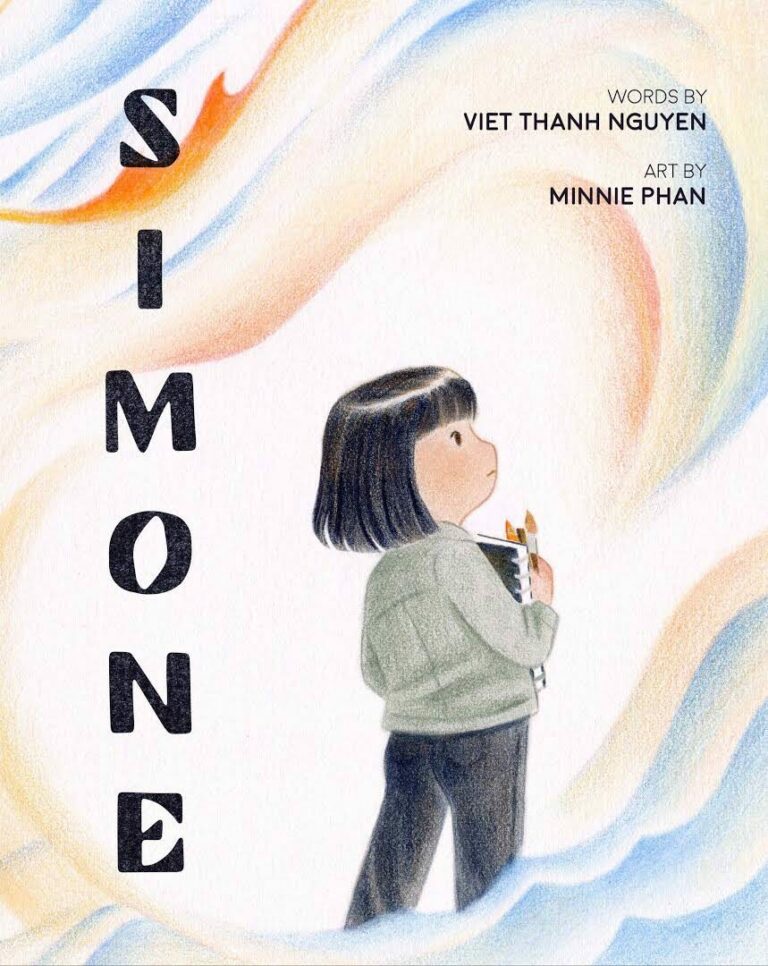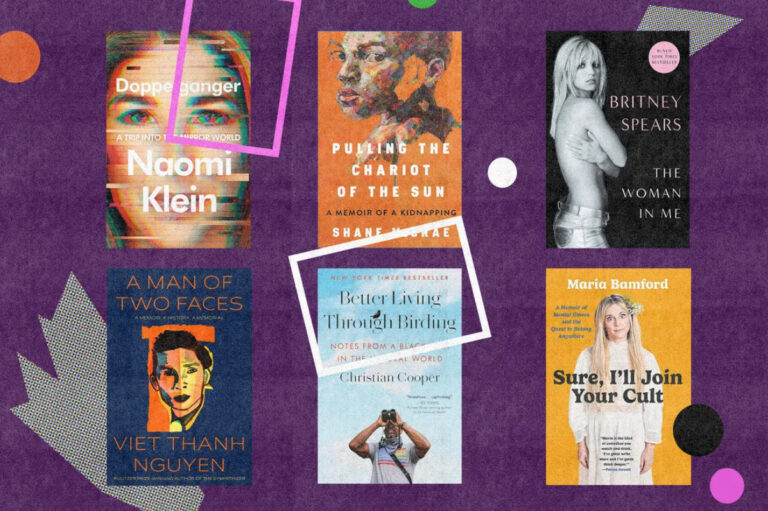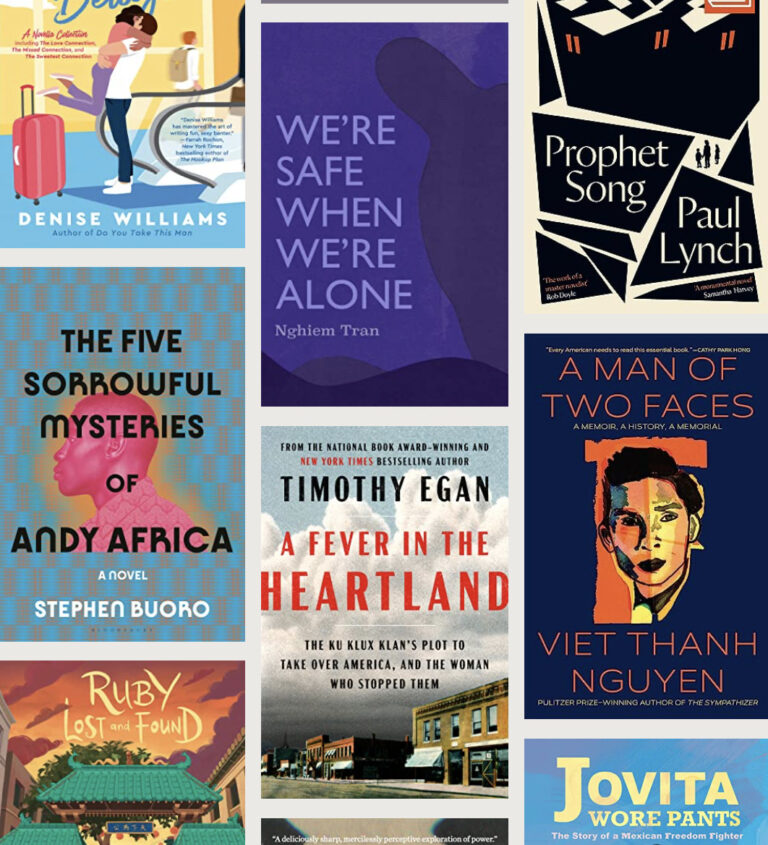Nguyen’s ‘A Man of Two Faces’ tackles war, colonization, death and more, but still manages to be playful
In a recent interview, the Pulitzer Prize-winning novelist Viet Thanh Nguyen spoke about his “pervasive preoccupation” with the power of storytelling and his relationship to otherness. He contends with both in “A Man of Two Faces,” his formally audacious new memoir, which was recently longlisted for the National Book Award for nonfiction. It is a vision of storytelling as not only internal work but also political work. Beginning with fragments of his early life, he asks, in a verse-like passage: “Where, on the thin border between/ history and memory, can I re/ member myself?”
Nguyen, who was born in 1971, was 4 when he fled Vietnam with his parents and older brother for what he terms AMERICA™. His 16-year-old sister, whom he would not see again for nearly 30 years, was left behind. At a military base in Pennsylvania, the rest of his family was separated to live with American sponsors. Reunited after several years, they eventually settled in San Jose, and opened the city’s second Vietnamese grocery store, where, when Nguyen was 9, his parents were shot and injured during a Christmas Eve holdup, the aftermath of which he excised from memory. As a newly politically active ethnic-studies student at the University of California at Berkeley, he published an essay about what it was like to grow up in “White America.” It landed him a spot in the writing workshop of the famed author Maxine Hong Kingston, but he writes that he slept through it every day. (Years later, she told him he had been the worst student in the class.) He earned a PhD in English, started teaching at the University of Southern California and wrote his first novel, “The Sympathizer,” which won the Pulitzer in 2016.
The success of “The Sympathizer” transformed Nguyen into a “Professional Refugee” lauded for “giving voice to the previously voiceless,” but in “A Man of Two Faces,” he indicts the paucity of diversity and representation in politics, and advocates for abolishing the very conditions of voicelessness.
In his memoir, Nguyen writes that childhood left a “a sediment of confusion and emotion that requires decades … to sift through,” and that it was through this process of sifting that he learned how to be a writer. He incorporates cultural criticism — one chapter details how watching “Apocalypse Now” was a turning point that made him question whether, if he had been in the movie, he would have been “the Americans killing? Or the Vietnamese being killed?” — with meditations on his roles as a parent, son and refugee, digging deeper into memory as the book progresses (“Can you go where it hurts?/ Can you cut to the bone?”) as the “unexploded ordnance of the past, a mine buried in the mind,” gradually comes into focus.
The stereoscopic structure of the personal and the cultural challenges us to reflect on how the formation of self involves stories told about us as well as those we tell ourselves. In Nguyen’s case, this requires vigorous self-interrogation and self-inventory: “Are you, a refugee, the/ colonized or the/ colonizer?” It’s not either-or.
In Vietnam, Nguyen’s parents were among the 800,000 Roman Catholics transported from the country’s north to its Central Highlands by the Americans and French, part of a CIA-encouraged effort to resettle a region where Indigenous Montagnard people already lived. And coming to the United States as refugees meant “becoming shareholders in the war machine, the/ ultimate condition of our citizenship.” Writing about Tou Thao, the Hmong American police officer who was convicted of aiding and abetting manslaughter in the killing of George Floyd, Nguyen confesses, “Perhaps … you are more alike than you care to admit.”
The subject matter is serious — war, colonization, Nguyen’s mother’s decades-long illness before her death in 2018 and his inability to recall particularly painful times when she was hospitalized — but there is a playfulness as well: changing font sizes; taking liberties with layout; writing with sardonic humor; sharing a list of one-star reviews of “The Sympathizer,” which Nguyen calls a “Not So Great American Novel.” Forsaking a traditional prose format for discrete paragraph-length chunks of text set apart with line breaks, Nguyen occasionally aligns alternating paragraphs left and right to mimic a dialogue between opposing voices, even anticipating potential criticism: “Get over it, snowflake, a reader mutters.” (At other times, the stylistic choices make for a more awkward, choppy tone: “Dis-placed. Dis place. Dys-place.”) “You” is a stand-in for “I,” providing necessary distance for a writer who confesses to avoiding feelings by hiding behind academic theory. “You, the reader, never the text.”
“How do you separate yourself/ and your memories from History?” Nguyen asks. The answer is, you don’t. His most emotionally powerful writing revolves around his parents, whose journey into old age was “epic and yet quotidian.” Ba, a stern man whom Nguyen feared and respected, never discouraged him from becoming a scholar and writer. And while Má’s illness and death will not count as one of war’s casualties, “civilian stories can be war stories too.” The memoir fully coheres in its final section, exemplifying its author’s call for the importance of truth-telling, sharing both “private secrets” and “open secrets,” an act that comes with risks — writers who fall outside the dominant culture are expected to show their grief but not explain why it exists. “Writing is the only way I know how to fight,” Nguyen writes. “And writing is the only way I know how to grieve.” Sharp and affecting, this book is both: a weapon, a lamentation.


